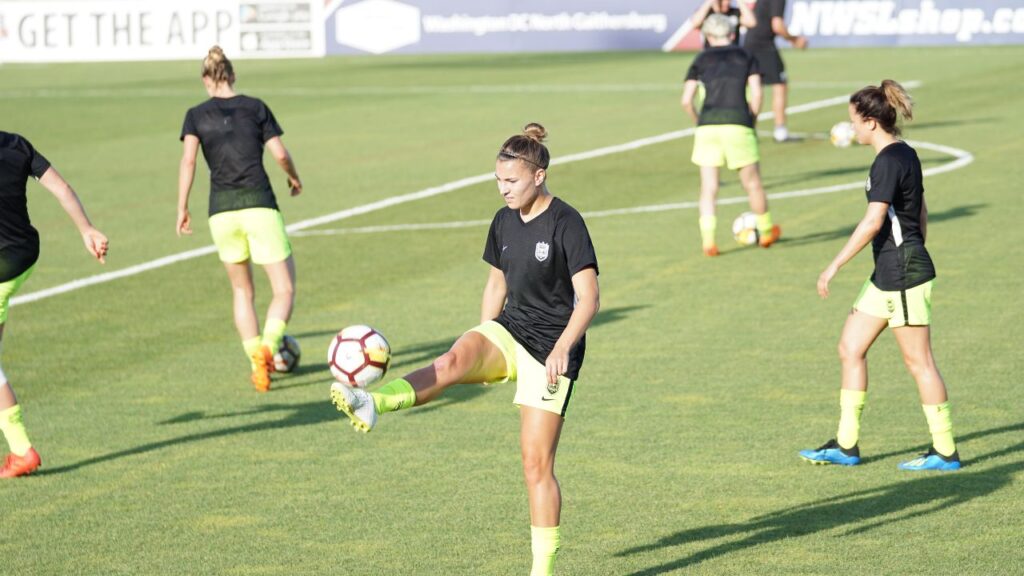In order to break stereotypes in sports, it is crucial to provide women athletes with the opportunities they deserve and ensure they receive proper training. It requires colleges and sports training academies to take a proactive role in supporting and promoting female athletes. The National Collegiate Athletic Association (NCAA) has taken significant steps in this direction, as their recent report highlights the positive changes occurring in collegiate sports.
As per the suggestions put forth by the NCAA Gender Equity Task Force, the women’s program was established in 1994; this program encompassed emerging sports for women, such as rowing, ice hockey, water polo, and bowling, and granted them NCAA championship status. In the academic year 2021-2022, more than 13,000 female athletes participated in these sports. The most recent data released by the NCAA indicates that the overall number of female student-athletes in 2021-2022 was 226,212.
Countless female athletes continue to harbor aspirations of showcasing their talents while proudly wearing their vibrant collegiate gear. However, obstacles still hinder their progress and prevent them from achieving their goals. Hence, it is imperative to empower women athletes in collegiate sports. Let’s explore how this can be accomplished.
How to Empower Female Athletes in Collegiate Sports?
1) Providing Equal Opportunities:
Ensuring equal opportunities for female athletes is vital in empowering them in collegiate sports. Colleges and universities need to work towards providing fair funding, resources, and facilities for women’s sports programs. It entails investing in qualified coaches and promoting the inclusion of female coaches. Additionally, offering academic support and scholarships tailored for women athletes can further enhance their participation and success in collegiate sports.
2) Building Comprehensive Support System:
For athletes to succeed, it is essential to receive support from their coaches and their team or institution. Thus, it is crucial to establish inclusive support systems that encompass various aspects of their well-being, including physical, mental, and emotional health. It involves providing access to sports medicine, sports psychology, and nutrition professionals who can cater to their unique requirements and assist them in optimizing their performance. Furthermore, mentorship programs and initiatives to develop leadership skills can cultivate female athletes’ sense of belonging and self-assurance.
3) Participation in Emerging Sports:
Collegiate women athletes should not be limited to participating only in traditional sports; they should also have the opportunity to engage in various emerging sports. In line with this objective, through its women’s program, the NCAA has already taken the initiative to introduce five such sports, including acrobatics and tumbling, equestrian, rugby, triathlon, and women’s wrestling. This decision has allowed collegiate women athletes to engage in these emerging sports, which can potentially lead to future participation at the state or even national level.

4) Positive Team Culture:
The presence of a female athlete team should not only serve as an inspiration for numerous student-athletes aspiring to wear the esteemed collegiate apparel. It is equally important for the team to cultivate a positive team culture that motivates students to join and uphold those same values. Female athletes should receive training to become strong supporters of one another and foster a positive team environment. Most importantly, they should be instilled with a deep understanding of the significance of playing as a cohesive team.
5) Promoting Female Leadership:
Ensuring the motivation and confidence of women athletes is crucial for their success in the world of sports. Therefore, colleges should prioritize the inclusion of female athletes in decision-making committees. This means providing opportunities for women athletes to hold influential positions within the institutions. Additionally, there should be a focus on recruiting more female coaches and head coaches.
Endnote
The world of women’s athletics is evolving, but challenges persist. Acknowledging and addressing these issues is imperative; sports academies have a pivotal role in taking proactive steps. The NCAA has consistently championed the empowerment of female athletes and continues to encourage their participation in sports. Furthermore, it is essential to foster inspiration and motivation among athletes, ensuring they have the support needed to overcome obstacles on their path to success.
In addition to physical training, offering female athletes mental support is crucial to keep them motivated and focused. Institutions should provide resources to address their psychological well-being. Moreover, financial assistance should be available to ensure that no female athlete feels hindered by financial constraints, ensuring that their athletic pursuits do not hinder their prospects. Educating them that sports are not merely a passion but an integral part of their identity is essential.
[Also Read: 4 Sports Watches You Should Try]